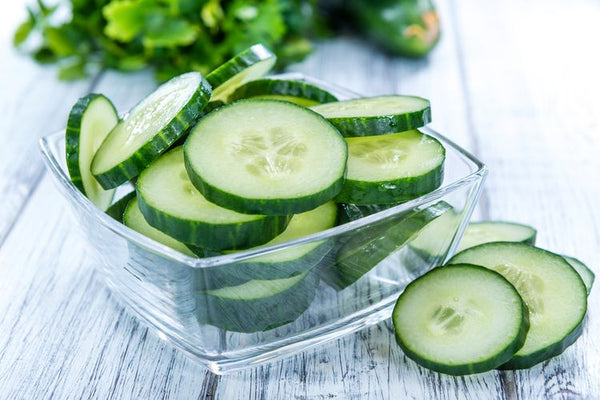
Be Careful, These 4 Bacteria That Cause Diarrhea that Should Be Avoided

You need to know the number of bacteria that cause diarrhea and how they characterize it if they are exposed to this disease.
By knowing it, we can maintain the family's health by preventing it.
What's more, for the Little One who is prone to dehydration.
You need to pay attention to whether the stool turns watery or watery, as well as defecation more often.
If so, it means that you or other family members have diarrhea.
Read: What is Pellagra Disease: Symptoms, Causes, Treatment
Common Causes of Diarrhea
Diarrhea is a common condition and usually resolves without intervention.
If it continues without any signs of stopping, you need to see a doctor.
If left unchecked, the body can become dehydrated.
It is not only the bacteria that cause diarrhea but there are many other factors.
Quoting from the Mayo Clinic, there are several common causes, there are several bacteria that cause diarrhea.
Here are the details:
1. Viruses
Viruses can cause diarrhea, some of which are Norwalk virus or norovirus, enteric adenovirus, astrovirus, cytomegalovirus, and viral hepatitis.
Rotavirus is a common cause of acute diarrhea in children.
So, you must be vigilant so that Little One does not get this virus.
2. Bacteria and Parasites
There are many types of bacteria that cause diarrhea. Does Salmonella cause diarrhea? Yes, of course.
In addition to salmonella, exposure to pathogenic bacteria, such as E. coli or parasites through contaminated food or water, also causes diarrhea.
3. Medications
Antibiotics can actually cause diarrhea too, you know!
Besides being able to kill bad bacteria, antibiotics also kill good bacteria.
If left unchecked, the body can become dehydrated.
4. Fructose
Another cause, namely fructose.
It is a sugar found naturally in fruits and honey.
Sometimes fructose is added as a sweetener for certain drinks.
However, fructose can cause diarrhea in people who have difficulty digesting it.
5. Artificial Sweeteners
A wide variety of artificial sweeteners such as sorbitol, erythritol, and mannitol, can cause diarrhea.
This content is commonly found in chewing gum and other sugar-free products.
Pay attention to this content in food and drinks so as not to consume them excessively.
6. Operation
Not only food and drink, but surgery can also be the cause of diarrhea.
Surgical removal of part of the intestines or gallbladder can sometimes cause diarrhea.
7. Other Digestive Disorders
There are various kinds of causes of diarrhea due to several conditions that need to be considered.
Example, is irritable bowel syndrome (IBS), Crohn's disease, ulcerative colitis, Celiac disease, microscopic colitis, and excessive growth of small intestine bacteria (SIBO).
Bacteria That Cause Diarrhea
There are at least four commonly known types of diarrhea-causing bacteria.
Know one by one the types of bacteria that cause this diarrhea, namely:
1. Salmonella
One of the bacteria that causes diarrhea is Salmonella.
Usually, these bacteria are present in food.
Quoting from Medline Plus, Salmonella can be found in raw poultry, eggs, beef, and sometimes in unwashed fruits and vegetables.
You and the Little One can also become infected after handling animals like reptiles, turtles, and lizards.
Features of diarrhea due to Salmonella bacteria include:
- Fever
- Diarrhea
- Stomach cramps
- Headache
- Possible nausea, vomiting, and loss of appetite
Symptoms usually last 4-7 days. Infections can be more severe in older adults, infants, and people with chronic diseases.
2. Campylobacter
Another diarrhea-causing bacterium, namely Campylobacter, is also found in contaminated food.
Usually, this bacterium is found in raw or undercooked poultry.
You can also get it from contaminated drinking water or raw milk.
Infected people do not immediately feel the symptoms.
Symptoms are felt two to five days after.
Features of diarrhea due to campylobacter bacteria include:
- Diarrhea (potentially bleeding)
- Stomach cramps
- Stomach ache
- Fever
- Fatigue
- Nausea and vomiting
To prevent this bacterial infection that causes diarrhea, you must cook poultry foodstuffs thoroughly.
Use a separate cutting board or cutlery for meat.
Be sure to clean it with soap and hot water after using it.
3. Shigella
The next cause of diarrhea, namely Shigella.
The infection is common in the intestinal lining.
Shigella dysenteriae is common in developing countries.
The outbreaks are closely related to poor sanitation, contaminated food and water, as well as densely populated living conditions.
The characteristics of diarrhea due to Shigella bacteria, namely:
- Sudden acute abdominal pain or cramps
- Acute fever
- Blood, mucus, or pus in the stool
- Rectal pain
- Nausea and vomiting
- Watery and bloody diarrhea
Symptoms of this diarrhea-causing bacterial infection develop on average three days after contact with the bacteria.
4. Escherichia coli (E. coli)
- coli is the name of a type of bacteria that lives in the intestines.
Most types of E. coli are actually harmless.
However, some types of it can make You and your families get diarrhea.
The worst type of E. coli bacteria causes bloody diarrhea, and kidney failure, and is fatal in death.
It is most likely to occur in children and adults with weakened immune systems.
Features of diarrhea due to E. coli bacteria:
- Nausea or vomiting
- Severe abdominal cramps
- Watery or very bloody diarrhea
- Fatigue
- Fever
To avoid this diarrhea-causing bacterial infection, You need to handle food safely.
Cook meat well, wash fruits and vegetables before eating or cooking and avoid unpasteurized milk and juices.
We can also get infected by ingesting water in public swimming pools contaminated with human feces.
That's an explanation of a number of bacteria that cause diarrhea.






